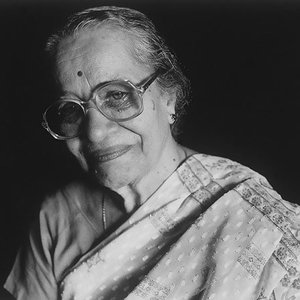Kamal Ranadive
Kamal Ranadive (8 November 1917 – 2001) was a pioneering Indian biologist and research scientist known for her groundbreaking research in the field of cancer biology and her significant contributions to the development of cell biology in India. Her full name was Kamal Jayasing Ranadive, and she was a prominent figure in the scientific community, advocating for cancer research and the establishment of dedicated research facilities in India.
Early Life and Education[edit | edit source]
Kamal Ranadive was born in Pune, Maharashtra, India, into a family that valued education and encouraged her intellectual pursuits. She completed her Bachelor's degree in Biology from Fergusson College, Pune, and subsequently earned her Master's degree in Botany from the University of Bombay. Driven by a strong desire to contribute to the field of medical science, particularly in understanding the mechanisms of disease, she pursued her doctoral studies in cytology, the study of cells, under the guidance of Dr. J.V. Bhide at the Indian Cancer Research Centre (ICRC), now known as the Cancer Research Institute (CRI), Mumbai.
Career and Research[edit | edit source]
After obtaining her Ph.D., Ranadive continued her research at the ICRC, where she focused on the study of leukemia and breast cancer. Her work was pioneering in the use of tissue culture techniques to understand cancer cells, which was a relatively new method at the time. She was among the first in India to propose a link between cancers and certain viruses, a hypothesis that later gained substantial evidence and acceptance.
In 1966, Kamal Ranadive received a fellowship to work at the Johns Hopkins University in Baltimore, USA, where she furthered her research on cell biology. Upon returning to India, she emphasized the importance of establishing a solid foundation in cell biology research and was instrumental in setting up the first tissue culture laboratory in the country at the ICRC.
Ranadive's dedication to cancer research and her efforts to promote science education in India were recognized both nationally and internationally. She was a founding member of the Indian Women Scientists' Association (IWSA), an organization aimed at supporting women in scientific fields.
Legacy and Awards[edit | edit source]
Throughout her career, Kamal Ranadive received numerous awards and honors for her contributions to science. These included prestigious recognitions such as the Padma Bhushan, one of India's highest civilian awards, for her services in the field of science and engineering.
Her legacy extends beyond her scientific achievements; she was a mentor to many young scientists and advocated for the importance of research in understanding and combating diseases. Ranadive's work laid the foundation for future generations of scientists in India and contributed significantly to the global understanding of cancer biology.
Death and Posthumous Recognition[edit | edit source]
Kamal Ranadive passed away in 2001, leaving behind a rich legacy of scientific inquiry and inspiration. Her life and work continue to be celebrated for their impact on cancer research and the advancement of cell biology in India.
In recognition of her contributions, several awards and fellowships have been established in her name, encouraging young scientists to pursue research in the field of cancer biology. Her story is a testament to the power of perseverance, dedication, and the pursuit of knowledge in the face of challenges.
Navigation: Wellness - Encyclopedia - Health topics - Disease Index - Drugs - World Directory - Gray's Anatomy - Keto diet - Recipes
Search WikiMD
Ad.Tired of being Overweight? Try W8MD's physician weight loss program.
Semaglutide (Ozempic / Wegovy and Tirzepatide (Mounjaro / Zepbound) available.
Advertise on WikiMD
WikiMD is not a substitute for professional medical advice. See full disclaimer.
Credits:Most images are courtesy of Wikimedia commons, and templates Wikipedia, licensed under CC BY SA or similar.Contributors: Prab R. Tumpati, MD

